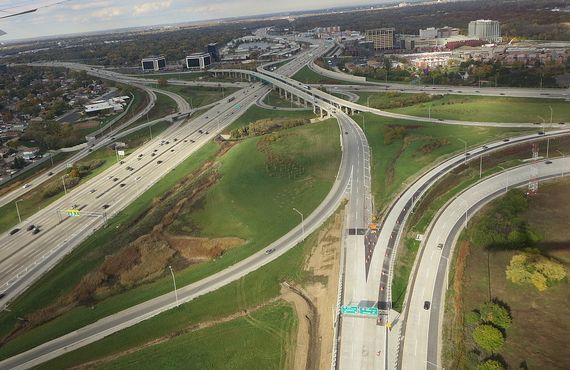
This Tuesday, Congressional negotiators reached a compromise on a highway bill, just days before transportation funding is set to expire this Friday. Absent funding, the Department of Transportation would have to cut off payments to state and local governments for transportation projects.
This bill, known as the Fixing America’s Surface Transportation (FAST) Act, will go to both chambers of Congress later this week and is expected to receive strong support. The bill will provide for five years of highway funds and, if passed, will be first time Congress has authorized highway funding for more than two years since 2005. Prior to this bill, Congress had passed numerous short term funding patches.
The FAST Act will provide approximately $205 billion on highways and $48 billion on transit projects over the five-year time frame. While this bill prevents a funding freeze, lawmakers still face issues on transportation policy. Most notably is the overspending issue that has plagued the highway trust fund for decades and has created the shortfall issues in funding we now face.
While most Americans would assume that money from the Highway Trust Fund (HTF) would go to fund solely highways, that reasonable assumption would be incorrect. HTF funds have actually supported everything from squirrel sanctuaries and landscaping to hiking trails and trolley rides.
In fact, spending on side projects has increased 38% since 2008 while spending on core highway projects has remained flat. For instance in 2010 17% of the Highway Trust Fund was diverted to non-core projects. The Wall Street Journal recently pointed out that “simply using the taxes that are supposed to pay for highways to, well, pay for highways makes the HTF 98% solvent for the next decade, no tax increase necessary.”
Luckily for low tax advocates, the federal gas tax was not raised, and remains at 18.4 cents per gallon. However the compromise reached this week leaves much to be desired. As mentioned, the FAST Act will provide roughly $48 billion for transit projects during the five-year time frame. The FAST Act will also extend the onerous and costly Export-Import Bank’s expired charter until 2019.
Photo Credit: yooperann

